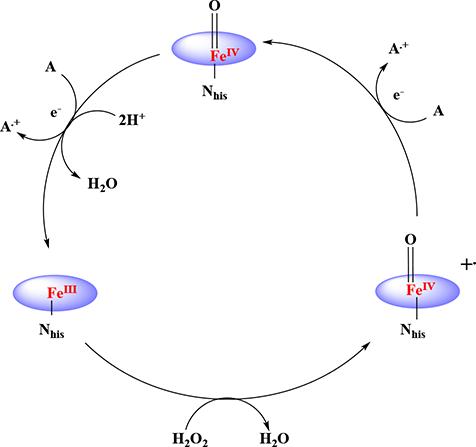Lifeasible specializes in milk-related testing and offers services to help detect lactoperoxidase (LPO) activity in milk.
Generally, it is essential to test for LPO in milk. LPO is an iron heme-based basic glycoprotein with a molecular weight of approximately 78 kDa. LPO is present in all mammary milk and is one of the major antibacterial ingredients in milk (Fig. 1). LPO can be used as an adjunct to guarantee food safety. In the milk industry, it is used in milk processing facilities. It is also used in milk and cheese to reduce microbiota, especially in the absence of refrigeration. In addition, LPO is a widely used indicator for milk heat treatment. Phosphate dehydrogenase activity in camel milk cannot be used to determine the heat treatment of milk. In this case, the heat treatment can be determined by testing the LPO activity.
 Fig. 1 Antibacterial effect of the lactoperoxidase enzyme (Koksal et al., 2016).
Fig. 1 Antibacterial effect of the lactoperoxidase enzyme (Koksal et al., 2016).
We help detect LPO in milk mainly based on the photometric method concerning international standards. We also offer high-throughput fluorometric methods for rapidly determining LPO activity while excluding interferences of milk compounds (H2O2 and SCN-).
This method is suitable for determining LPO activity in milk above 50 U/L.
The method is based on the LPO catalysis to convert ABTS [2,2'-azido-bis(3-ethylbenzothiazole-6-sulfonic acid)] to its radical cation at pH 6.0 and 25℃. This radical cation can be measured photometrically at 420 nm. Its amount released per minute is proportional to the LPO activity.
Operation flow:

Main reference standard:
ISO/TS 17193:2011
High-throughput fluorescence method
The method is highly sensitive. Its' limit of detection is 7.1x10−6 U/mL of LPO in milk. The method has been validated for the determination of LPO from bovine, goat, camel, and human milk.
The method is based on microplate fluorescent assay and has better intra-run and inter-run precision. The method is based on the LPO catalysis to convert 1-(3,7-dihydroxyphenoxazin-10-yl) ethenone to red-fluorescent resorufin. The resorufin has a higher ε value at 58,500 M−1.cm−1 than other oxidation products used for LPO determination, thus providing better sensitivity.
Operation flow:
The operation flow of the method is like that of the photometric method.
Sample delivery:
Before the measurement of the sample, the temperature should in no case exceed 35°C. Please ensure that the milk sample is refrigerated during transport.
Sample information:
If you know the heat treatment of the sample, please let us know so we can dilute the sample reasonably well for rapid testing.
Lifeasible assists in determining LPO activity in milk and milk products and offers professional services for the efficient performance of this determination. We also offer professional services to help determine other indicators for parameters related to the heat treatment of milk and milk products, including alkaline phosphatase, acid-soluble β-lactoglobulin, and lactose. Please contact us for a consultation.
References
Lifeasible has established a one-stop service platform for plants. In addition to obtaining customized solutions for plant genetic engineering, customers can also conduct follow-up analysis and research on plants through our analysis platform. The analytical services we provide include but are not limited to the following:
Get Latest Lifeasible News and Updates Directly to Your Inbox
Mechanisms Regulating Plant Chloroplast Biogenesis
April 15, 2025